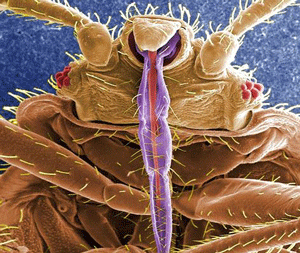Bed Bug Relief for NH Apartment Residents?
By Chris Williams on May 8, 2013.
 If you live in a rental property in New Hampshire, there is good news for you. Sitting on the governor’s desk is House Bill 482 which outlines the responsibilities of landlords and tenants when there is a bed bug infestation.
If you live in a rental property in New Hampshire, there is good news for you. Sitting on the governor’s desk is House Bill 482 which outlines the responsibilities of landlords and tenants when there is a bed bug infestation.
The problem has been, as you might expect, that no one wants to take responsibility for a bed bug infestation in an apartment or multi-unit building. Most apartment rental agreements include pest control service for cockroaches, mice, ants, and certain other common pests. Tenants tend to feel that their landlord should pay for treatment of bed bugs as well.
But treatment for bed bugs is more involved and more expensive than simple cockroach control. Many property managers simply do not have the budget for bed bug service. The landlord says that the tenant “brought the bed bugs with them” and is therefore responsible for paying for pest control service to get rid of them. The unfortunate result of this impasse is that all concerned may choose to ignore bed bug problems…at least initially.
Among the provisions of HB482:
- Landlords must investigate any complaints of bed bugs within 7 days.
- Tenants must allow landlords access (with 48 hours written notice) to assess whether their unit is infested with bed bugs when the landlord has received notice that an adjacent unit (above or below) is infested.
- Landlords must pay for bed bug treatment. This assures that the treatment will get done. However, if it is determined that the tenant is the source of the infestation, the landlord can recover his costs from the tenant. The responsible tenant must agree to reasonable payment terms within 30 days, or face eviction. It is the burden of the landlord to prove the tenant was responsible.
- Tenants must comply with any preparations required for bed bug treatment, and will be given instructions at least 72 hours prior to treatment.
The bill is designed to be a compromise that avoids the situation where the landlord is always the one paying for treatment, while at the same time, assuring that there is treatment before bed bugs spread throughout a building. The bill relies on tenants “owning up” and taking responsibility for a situation that is likely to cost them financially. Some opponents of the bill say that if tenants fear they will be held responsible for a bed bug infestation, they will choose not to report the problem. However, if they choose not to come forward and the bed bugs spread to other units, they could ultimately be held responsible for treatment of a much larger problem.
The bill grew out of the work of the Bed Bug Action Committee. It was introduced in January 2013, passed the House on February 20, and the Senate on April 18. It is now in the hands of the governor.
Photo credit: Janice Harney Carr, Center for Disease Control / Foter.com / Public domain